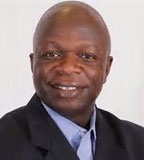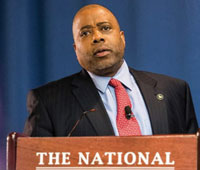 Jimmy Carter: America’s best former President
Jimmy Carter: America’s best former President
By Lekan Oguntoyinbo, NNPA Columnist
I became an admirer of Jimmy Carter shortly after he took office as the nation’s 39th president. I was 12-years-old at the time. I felt differently about Carter than his predecessors. I actually felt a personal connection, like I could relate to him.
Like me, he was Baptist and like many of my relatives, he taught Sun-day school. Unlike Richard Nixon, who left office in disgrace and who seemed to struggle with a host of demons, and unlike Gerald Ford, whose Administration supported the apartheid South African regime’s efforts to suppress liberation movements in Angola and Mozambique, he seemed well intentioned and decent.
So like millions of Africans, I was elated when in 1978 he became the first American president since Franklin Delano Roosevelt to make an official visit to the continent. FDR’s visit to Liberia in 1943 was just a brief stopover on his way to Tehran. He needed something. It was in the midst of World War II and he wanted to implore Liberian President Edwin Barclay to end his country’s neutrality and expel German expatriates.
But Carter was different. He seemed genuinely interested. He visited Liberia before heading to Nigeria, where he hung out for a few days. And for those few days, our eyes were glued to the television as we watched him, his wife, Rosalynn; youngest daughter, Amy, and their entourage of more than 400 tour Lagos, Nigeria’s commercial (and at the time its political) capital.
My personal connection soared on the Sunday of his visit when he worshipped at First Baptist Church Lagos, my grandparents’ and parents’ home church, and a congregation where my late grandmother, Comfort Okekunle Oguntoyinbo, was ordained a deaconess in 1946, becoming the first woman from our ancestral village to hold such a position.
We loved his seeming approachability and openness. We applauded his decision to place African Americans, including Andrew Young, in high profile positions. We saluted his efforts to help end white minority rule in Rhodesia. And we were saddened when his political career was cut short at the polls by Ronald Reagan, a man many Blacks around the world considered insensitive at best.
Over the decades, we watched delightfully as Carter reinvented himself as a statesman, laborer for Habitat for Humanity, peacemaker, champion of democracy, human rights activist and warrior in the battle against diseases such as guinea worm. His efforts abroad earned him a well-deserved Nobel Peace Prize in 2002. He has been persistent in holding Nigeria, Sudan, Haiti and other countries accountable on human rights issues. He has served as an election observer in dozens of countries. He has complimented authorities in countries when the elections were free and fair. He has been outspoken when they weren’t. He’s been fearlessly outspoken about Israel’s reckless disregard of the rights of Palestinians.
Jimmy Carter’s been a relentless peacemaker who has championed the plight of Haitians. He was probably the first ex-president to call for re-thinking the misguided Cuban embargo.
At home, he’s not been afraid to take on the most controversial issues. He’s been quick to point out that much of the malicious criticism against President Obama is motivated by racism.
It’s been an unlikely path for this farm boy from the nation’s most conservative region, this relative of slave owners who fled to Brazil after the Civil War because slavery was still legal in that South American country, and yet refused to be defined by his culture or his heritage. Like Lyndon B. Johnson, another southerner, Carter has earned a place in the pantheon of America’s most progressive presidents on the issue of race.
Now, the world is watching nervously as he fights the biggest battle of his life: brain cancer. Since making his diagnosis public, he has handled himself with grace, courage and dignity. He seems to be at peace with himself. He even taught Sunday school at his home church in Plains, Ga. a few days after undergoing the first in a series of radiation treatments for the disease.
Historians haven’t judged Carter’s presidency kindly. In truth, his presidency was hobbled by a weak economy, the Iranian hostage crisis, the pitiful failed attempt to rescue the hostages and Carter’s lack of savvy in navigating the nation’s capital. I suspect the evaluation of presidential historians won’t change much in the coming decades.
But I suspect that the moniker he was tagged with decades ago – America’s best former president – won’t change, either.
In both roles, he tried to do the right thing. He just did the job so much better after he left the White House.





Be the first to comment